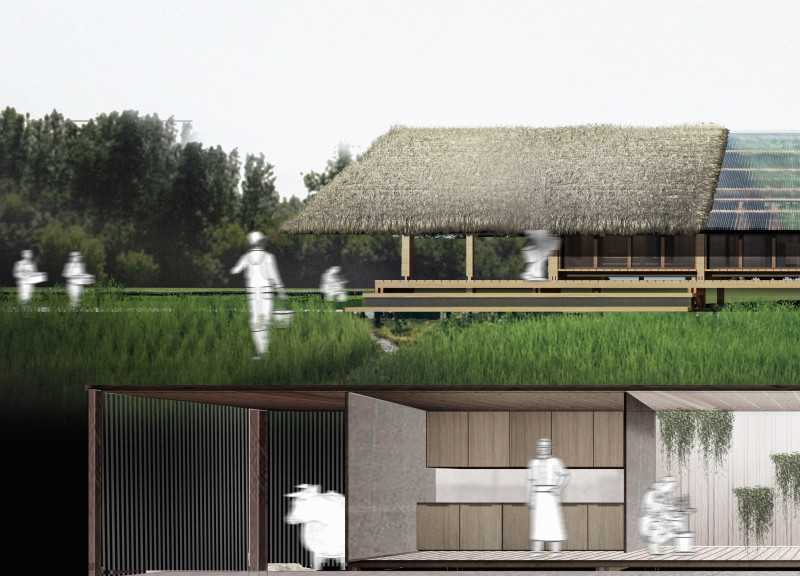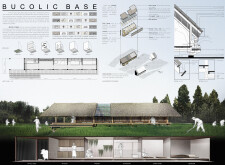5 key facts about this project
Modular Design Approach
At the core of the "Bucolic Base" is its modular layout, consisting of units that measure 1.5m x 2.0m. These interchangeable modules allow for versatile configurations that cater to varying family structures and requirements. Important modules within the design include essential living spaces such as the cattle shed, kitchen, garden, bathroom, living room, and bedrooms. This flexibility is a key feature, facilitating adaptability in the face of different user needs and preferences.
Sustainable Material Use
Sustainability is a primary focus of this architectural design. The project utilizes locally sourced materials, which not only support the regional economy but also minimize the environmental footprint. Key materials incorporated into the design include timber, which forms the structural framework, and thatch made from palm leaves for roofing, known for its insulation properties. Concrete serves as a resilient foundation material, ensuring stability and longevity. Additionally, features such as solar panels and a rainwater harvesting system are integrated, affirming the commitment to renewable energy and resource efficiency.
Community and Environmental Integration
The "Bucolic Base" embodies a philosophy that prioritizes the relationship between architecture and its surrounding natural landscape. The design promotes outdoor connectivity through terrace areas that integrate seamlessly with the environment. This arrangement encourages social interaction among residents and reinforces a sense of community. By aligning living spaces with agricultural practices, the project supports a lifestyle that respects both cultural identity and ecological conservation.
To gain further insights into the architectural plans, sections, and design ideas of the "Bucolic Base," readers are encouraged to explore the detailed project presentation. Additional visual and technical documentation enriches the understanding of this thoughtful and community-focused architectural endeavor.























